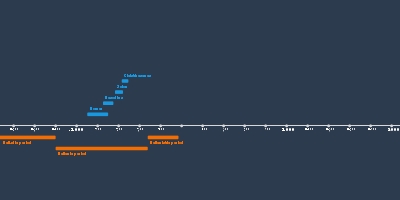Marius vs Sulla (jan 1, 90 BC – jan 1, 79 BC)
Description:
Rome was now dividing into two different factions, the Populares and the Optimates. The Populares would seek to increase their power through the plebeian assembly and the power of the tribunes, while the optimates employed the traditional means of patron-client relationships and working primarily through the Senate. The favored general of the populares was Marius and would elect him for consul four years in a row, which was technically illegal and put a huge amount of power in a military leader. The favored general of the optimates was Sulla, Marius’s former assistant. In 90 BCE many Roman allies in Italy would rise up because they were expected to serve in the army and had to pay taxes, without any political representation since they were no full citizens. Sulla’s army would gain numerous victories over the Italian allies, but eventually, the Senate would grant them full citizenship to end the fighting.In 88 BCE Sulla’s military victories would lead to his election as consul and was given command of the Roman army in a campaign against the Mithridates. But before he could depart, the optimates would gain the upper hand in the assembly, revoked his consulship, and elected Marius as commander of the Roman army. Sulla fled the city and came back with an army of his own and put down his opponents, made some political changes, and was on his way to fight the Mithridates again. While Sulla was gone, Marius would lead his own troops in 88 BCE into town and undid Sulla’s changes, killing many of his supporters. Marius would die shortly after his return to power, but his supporters continued to hold Rome. Sulla returned in 83 BCE and butchered all of his opponents, and tried to get all power back to the Senate, just like before the Gracchan reforms. He entered the position of dictator and would abuse his powers by not stepping down after six months, but only in 79 BCE when he fell ill and had enough trust that his policies would last, the eventual result was civil wars for the coming 48 years.
Added to timeline:
Date:
jan 1, 90 BC
jan 1, 79 BC
~ 11 years
